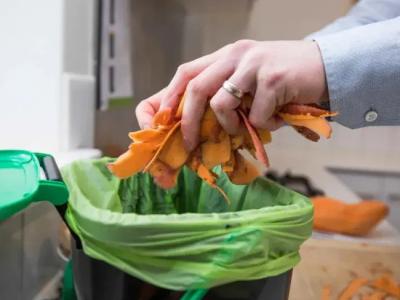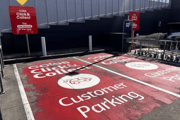It's 'going to stink’: Residents outraged over major bin changes
By
Maan
- Replies 24
Managing household waste is a routine part of life, but when changes to bin collections are introduced, they don’t always go down well with residents.
A new waste management overhaul is set to roll out in parts of Perth, but not everyone is on board with the shift.
Residents in the suburbs have voiced their frustration over a new bin system being introduced across several council areas, with some even launching petitions to oppose the changes.
The new system, which aims to improve waste management, will see red-lidded general waste bins collected fortnightly instead of weekly in some areas.
Other suburbs will receive an additional bin for green waste, but this will come at the cost of a significantly smaller bin for regular household rubbish.
The changes are part of the Western Australian government’s push to introduce Food Organics and Garden Organics (FOGO) bins across all metropolitan councils by 2025. Around 60 per cent of local councils have already agreed to the transition.
Kwinana will be among the first to adopt the three-bin system, starting in late April.
Rockingham will follow in June, where red-lidded bins will be collected every two weeks instead of weekly.
However, the rollout has been met with strong opposition from residents.
A petition against the new system has already gathered over 2,500 signatures.
Rockingham resident Thomas Soderholm, who has lived in the area for 30 years, slammed the changes as ‘the dumbest cost-saving measure’.
In a household of seven, including a two-year-old in nappies, he said leaving waste to sit for two weeks would create a serious hygiene issue and that 'going to stink'.
‘Imagine if you have a crayfish party? In this case, it’s nappies galore,’ he said.
Concerns about the impact of the new collection schedule were previously raised at a Rockingham council meeting in March last year.
Residents expressed fears that uncollected nappies and sanitary products would attract vermin and cause odour problems, but a motion to review the FOGO policy was ultimately shelved.
Despite criticism, Kwinana Mayor Peter Feasey defended the move, announcing in early March that the new system would ‘make waste management smarter, cleaner, and more environmentally friendly, as well as promoting sustainable waste management practices in our community’.
He said the decision to introduce a third bin was based on several factors, including economic, environmental, social, and governance considerations.
‘An average of 34 per cent of Kwinana’s current general waste bin is filled with compostable garden organics,’ he said.
‘By separating garden waste, we can turn it into valuable compost, supporting a greener Kwinana.’
However, some residents took to social media to criticise the plan, calling it a ‘waste of money’ and questioning its effectiveness.
One resident from a rural property pointed out that many people already compost their waste, while another argued that the smaller general waste bin was ‘too small for a family of five or more’.
Across Australia, several states have introduced FOGO bins as part of waste management initiatives, with New South Wales being the first to mandate their use for households in an effort to reduce landfill waste.
Western Australia’s bin system currently includes three main categories:
With the introduction of the FOGO system, a fourth bin with a lime green lid is being rolled out.
This bin is specifically for food and garden waste, including bread, dairy, fruit and vegetables, meat, bones, seafood, dog waste, paper towels, and tissues.
As stated by the Recycle Right website: ‘If it didn’t live or grow, it’s not FOGO.’
In Rockingham, households will receive a 360L recycling bin, a 240L green waste bin, and a significantly smaller 140L general waste bin.
In Kwinana, properties larger than 350 sqm will automatically receive a 240L GO bin, while smaller properties will have the option to opt in. All properties will receive a new 140L red-lidded bin, with an option to upgrade to a 360L recycling bin free of charge.
Apartments and multi-unit dwellings with shared waste collection will be assessed individually.
The City of Kwinana and the City of Rockingham have been contacted for further comment.
In a previous story, we covered the state’s latest regulations on waste management and what they mean for households.
With the new bin system now rolling out, these changes are becoming a reality for many residents.
Read more to see how the new rules could impact you.

With bins piling up and residents divided, the question remains: will this new system improve waste management or create more headaches? Let us know your thoughts in the comments.
A new waste management overhaul is set to roll out in parts of Perth, but not everyone is on board with the shift.
Residents in the suburbs have voiced their frustration over a new bin system being introduced across several council areas, with some even launching petitions to oppose the changes.
The new system, which aims to improve waste management, will see red-lidded general waste bins collected fortnightly instead of weekly in some areas.
Other suburbs will receive an additional bin for green waste, but this will come at the cost of a significantly smaller bin for regular household rubbish.
The changes are part of the Western Australian government’s push to introduce Food Organics and Garden Organics (FOGO) bins across all metropolitan councils by 2025. Around 60 per cent of local councils have already agreed to the transition.
Kwinana will be among the first to adopt the three-bin system, starting in late April.
Rockingham will follow in June, where red-lidded bins will be collected every two weeks instead of weekly.
However, the rollout has been met with strong opposition from residents.
A petition against the new system has already gathered over 2,500 signatures.
Rockingham resident Thomas Soderholm, who has lived in the area for 30 years, slammed the changes as ‘the dumbest cost-saving measure’.
In a household of seven, including a two-year-old in nappies, he said leaving waste to sit for two weeks would create a serious hygiene issue and that 'going to stink'.
‘Imagine if you have a crayfish party? In this case, it’s nappies galore,’ he said.
Concerns about the impact of the new collection schedule were previously raised at a Rockingham council meeting in March last year.
Residents expressed fears that uncollected nappies and sanitary products would attract vermin and cause odour problems, but a motion to review the FOGO policy was ultimately shelved.
Despite criticism, Kwinana Mayor Peter Feasey defended the move, announcing in early March that the new system would ‘make waste management smarter, cleaner, and more environmentally friendly, as well as promoting sustainable waste management practices in our community’.
He said the decision to introduce a third bin was based on several factors, including economic, environmental, social, and governance considerations.
‘An average of 34 per cent of Kwinana’s current general waste bin is filled with compostable garden organics,’ he said.
‘By separating garden waste, we can turn it into valuable compost, supporting a greener Kwinana.’
However, some residents took to social media to criticise the plan, calling it a ‘waste of money’ and questioning its effectiveness.
One resident from a rural property pointed out that many people already compost their waste, while another argued that the smaller general waste bin was ‘too small for a family of five or more’.
Across Australia, several states have introduced FOGO bins as part of waste management initiatives, with New South Wales being the first to mandate their use for households in an effort to reduce landfill waste.
Western Australia’s bin system currently includes three main categories:
- Red bin: General waste, including clothing, packaging, soft plastics, and nappies.
- Yellow bin: Recycling, such as clean glass bottles and jars, paper, plastic bottles (without lids), flattened cardboard, and empty cans.
- Dark green bin: General waste, including small prunings, household waste, nappies, and food waste. Glass, building materials, and medical waste are not permitted.
With the introduction of the FOGO system, a fourth bin with a lime green lid is being rolled out.
This bin is specifically for food and garden waste, including bread, dairy, fruit and vegetables, meat, bones, seafood, dog waste, paper towels, and tissues.
As stated by the Recycle Right website: ‘If it didn’t live or grow, it’s not FOGO.’
In Rockingham, households will receive a 360L recycling bin, a 240L green waste bin, and a significantly smaller 140L general waste bin.
In Kwinana, properties larger than 350 sqm will automatically receive a 240L GO bin, while smaller properties will have the option to opt in. All properties will receive a new 140L red-lidded bin, with an option to upgrade to a 360L recycling bin free of charge.
Apartments and multi-unit dwellings with shared waste collection will be assessed individually.
The City of Kwinana and the City of Rockingham have been contacted for further comment.
With the new bin system now rolling out, these changes are becoming a reality for many residents.
Read more to see how the new rules could impact you.
Key Takeaways
- Perth residents are protesting a new bin system that reduces red-lid waste collection to fortnightly and introduces a green waste bin.
- A petition against the changes has over 2,500 signatures, with concerns about hygiene, odour, and bin sizes for larger households.
- Kwinana Mayor Peter Feasey defended the system, stating it would improve waste management and that 34 per cent of current waste is compostable.
- The new system includes a lime green FOGO bin for food and garden waste, with rollout beginning in Kwinana in April and Rockingham in June.
With bins piling up and residents divided, the question remains: will this new system improve waste management or create more headaches? Let us know your thoughts in the comments.
Last edited:








